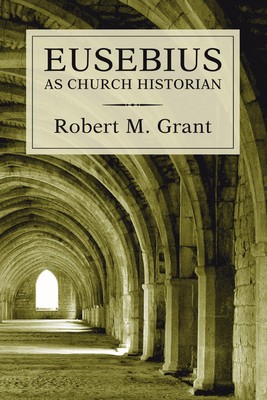
- We will send in 10–14 business days.
- Author: Robert M Grant
- Publisher: Wipf & Stock Publishers
- ISBN-10: 1597529575
- ISBN-13: 9781597529570
- Format: 14 x 21.6 x 1.1 cm, softcover
- Language: English
- SAVE -10% with code: EXTRA
Reviews
Description
This study cast s some light on Eusebius and his times by tracing, or trying to trace, modifications in his views as expressed in the Church History. Everyone agrees that such modficiations can be found in Books VIII-X. This study seesk to find them in the first seven books as well. It does not make much difference whether we are illuminating the first quater of the fourth century or, in addition, the last years of the third century. In either case our sources for the history of Christianity are so meagre that closer analysis can only prove helpful. And whether or not one agrees with every detail of the portrait of Eusebius that begins to emerge, it is at least a picture of a human being, neither a saint nor intentionally a scoundrel. Eusebius' work is imprortant not just because of the documents he used but because of the ways in which he used them. These ways illuminate the history of the Christian Church in one of its most important transitions, a transition in which Eusebius himself played a prominent part. -adapted from the concluding chapter Robert M. Grant traces the genesis of the Ecclesiastical History. Continuing a line of inquiry explored by Schwartz and others, he argues that the History (or at least parts of it) went through three stages of writing. . . . What we have is a close analysis of the History, its writing, and its sources; as such it also should be a valuable tool for further assessment of the question concerning how much we really know about the first three Christian centuries. -Eugene TeSelle Church History Robert M. Grant is Carl Darling Buck Professor Emeritus, Department of New Testament & Early Christian Literature and Divinity School, University of Chicago. He is the author of numerous works on early Christianity, including Paul in the Roman World, A Short History of the Interpretation of the Bible, Gnosticism and Early Christianity, The Early Christian Doctrine of God, and Augustus to Constantine.
EXTRA 10 % discount with code: EXTRA
The promotion ends in 20d.07:25:32
The discount code is valid when purchasing from 10 €. Discounts do not stack.
- Author: Robert M Grant
- Publisher: Wipf & Stock Publishers
- ISBN-10: 1597529575
- ISBN-13: 9781597529570
- Format: 14 x 21.6 x 1.1 cm, softcover
- Language: English English
This study cast s some light on Eusebius and his times by tracing, or trying to trace, modifications in his views as expressed in the Church History. Everyone agrees that such modficiations can be found in Books VIII-X. This study seesk to find them in the first seven books as well. It does not make much difference whether we are illuminating the first quater of the fourth century or, in addition, the last years of the third century. In either case our sources for the history of Christianity are so meagre that closer analysis can only prove helpful. And whether or not one agrees with every detail of the portrait of Eusebius that begins to emerge, it is at least a picture of a human being, neither a saint nor intentionally a scoundrel. Eusebius' work is imprortant not just because of the documents he used but because of the ways in which he used them. These ways illuminate the history of the Christian Church in one of its most important transitions, a transition in which Eusebius himself played a prominent part. -adapted from the concluding chapter Robert M. Grant traces the genesis of the Ecclesiastical History. Continuing a line of inquiry explored by Schwartz and others, he argues that the History (or at least parts of it) went through three stages of writing. . . . What we have is a close analysis of the History, its writing, and its sources; as such it also should be a valuable tool for further assessment of the question concerning how much we really know about the first three Christian centuries. -Eugene TeSelle Church History Robert M. Grant is Carl Darling Buck Professor Emeritus, Department of New Testament & Early Christian Literature and Divinity School, University of Chicago. He is the author of numerous works on early Christianity, including Paul in the Roman World, A Short History of the Interpretation of the Bible, Gnosticism and Early Christianity, The Early Christian Doctrine of God, and Augustus to Constantine.


Reviews